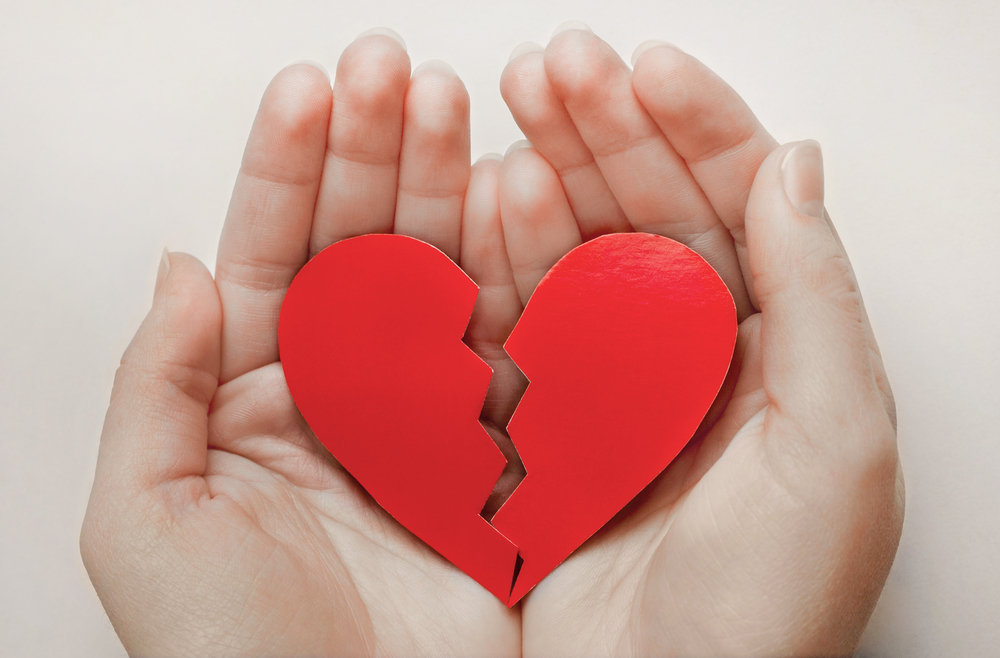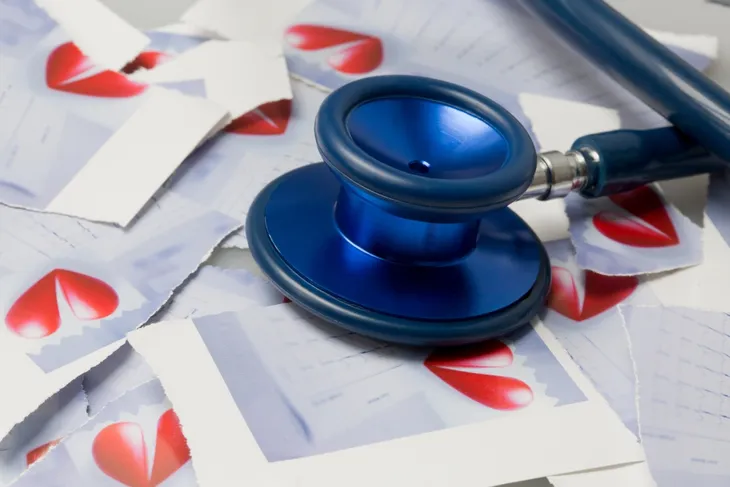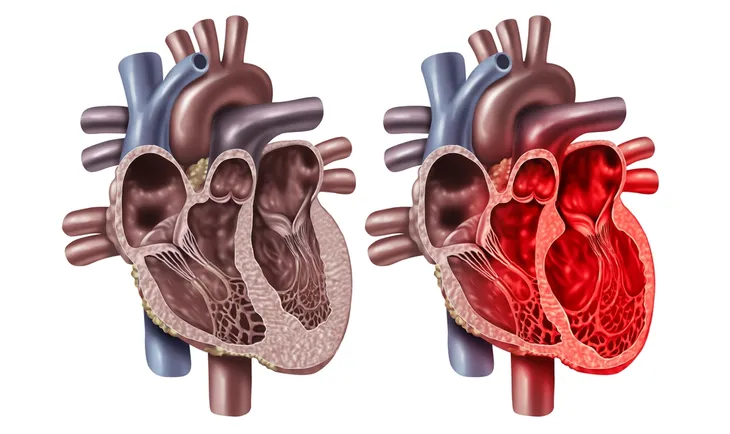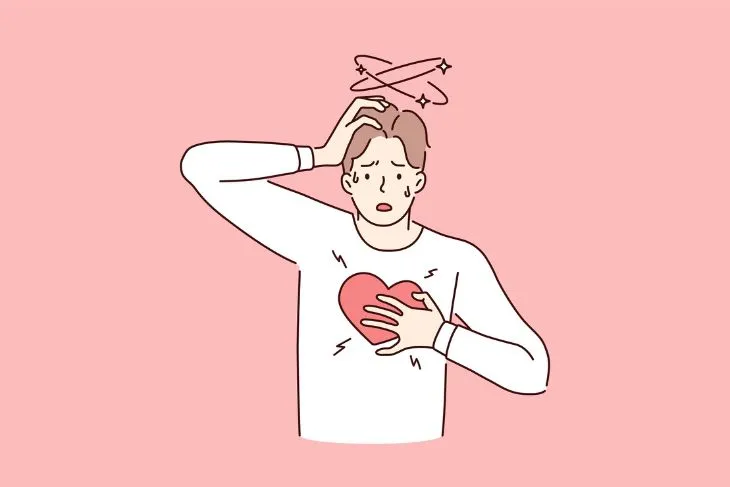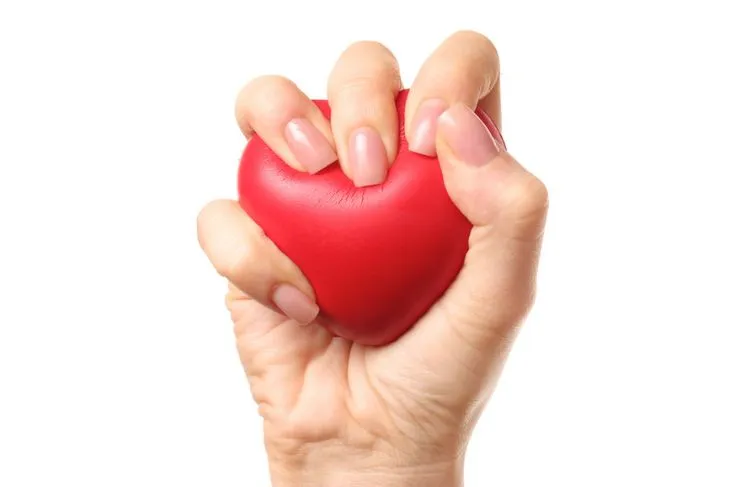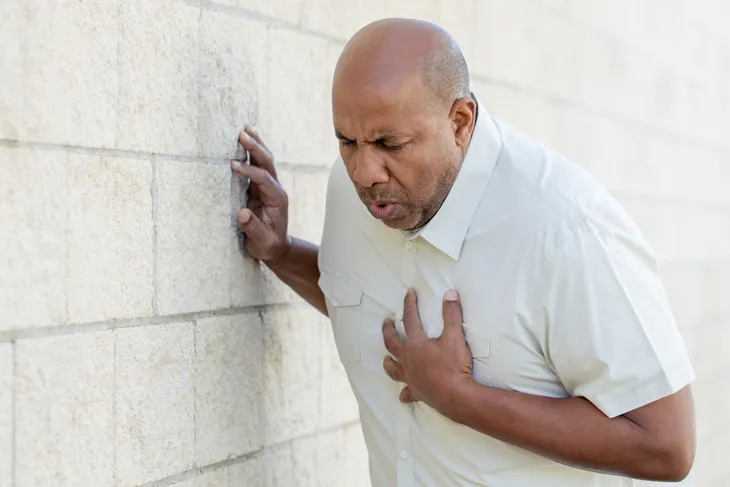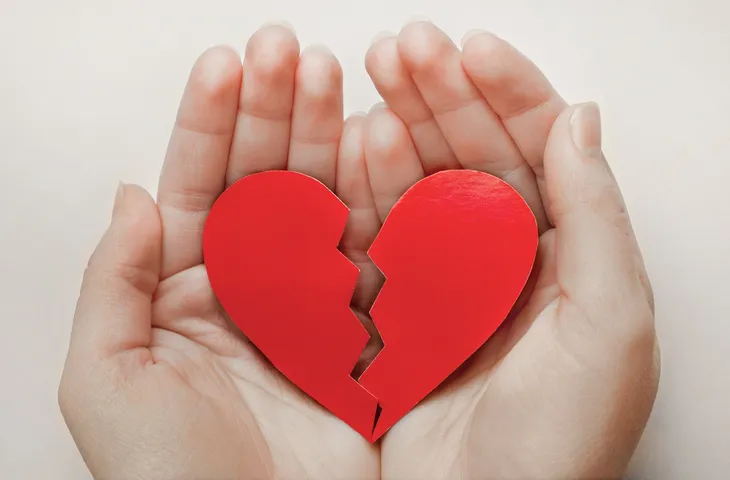- Broken heart syndrome is a temporary condition that can occur as a result of sudden emotional or physical stress.
- It’s often mistaken for a heart attack because of their similar symptoms (i.e. chest pain, shortness of breath, diaphoresis [sweating], and dizziness).
- Emotional and physical stress are the triggers, broken heart syndrome is the result of a surge of stress hormones that may temporarily damage the heart.
- There is no cure for broken heart syndrome, but most people make a fully recovery after taking medicine.
It’s not uncommon for people to refer to a break-up or distressing event as leaving them “heartbroken.” We obviously know this is a figure of speech and that their heart is not literally broken. The phrase is merely a way for them to convey how upset they are over their emotional situation.
However, it turns out, there is such thing as a real broken heart. The condition is referred to as broken heart syndrome and is usually caused by a stressful situation or extreme emotions. While it certainly sounds serious, the Mayo Clinic explains that it’s a temporary condition, but can have lingering effects. Here’s everything to know about broken heart syndrome…
What is Broken Heart Syndrome?
Broken heart syndrome (also known as takotsubo cardiomyopathy) can occur as a result of sudden emotional or physical stress. These stressful situations rapidly weaken the heart muscle, explains the Cleveland Clinic. Affecting just part of the heart, broken heart syndrome briefly interrupts the way the heart pumps blood, explains the Mayo Clinic. It can sometimes cause the heart to contract more forcefully.
Many people who have this condition think they are having a heart attack because of the similarity in symptoms. You’ll likely experience shortness of breath and chest pain, but unlike a heart attack, there are no blocked coronary arteries or permanent heart damage, explains the Cleveland Clinic. Despite how scary it sounds, it’s temporary and people who have it tend to make a fast and full recovery.
Four Types of Broken Heart Syndrome
According to the Cleveland Clinic, the most common type is apical which is responsible for 80-percent of all cases. This particular type of broken heart syndrome affects the lower half of your heart. Mid-ventricular affects the middle section of your ventricles (the area that looks like a belt or ring around the heart). Other areas of the heart will continue to function properly.
Basal is similar to mid-ventricular affecting the area that looks like a ring or belt, but occurs higher up with only the area below the belt functioning normally, explains the source. This type of broken heart syndrome is rare, making up 2-percent of all cases.
Lastly, focal is even more rare at 1-percent of all cases. It involves a very small area of the heart. “The affected area forms a bulge that sticks out noticeably from the rest of your heart,” writes the Cleveland Clinic. The opposite side of the heart will curve inward toward the bulge.
Most Common Symptoms
People often think they are having a heart attack when they have broken heart syndrome because the symptoms are so similar. According to Johns Hopkins Medicine, the most common symptoms of broken heart syndrome are chest pain, shortness of breath, diaphoresis (sweating), and dizziness. WebMD also adds nausea, low blood pressure, and an irregular heartbeat.
The source also notes that these symptoms can occur either immediately following an emotionally or physically stressful event, or as long as hours after. WebMD also notes that if you feel as though you are having a heart attack, the safest and smartest thing to do is call 911.
What Causes Broken Heart Syndrome?
While broken heart syndrome often occurs after a physically or emotionally stressful event, it’s not the direct cause. While the exact cause of this condition is not 100-percent clear, WebMD explains that it’s thought to be the result of a surge of stress hormones that temporarily impact the heart’s ability to pump blood. It also temporarily weakens the left ventricle causing it to stop pumping as well.
“Experts also believe that your coronary arteries, which feed oxygen to your heart muscle, spasm,” writes the source. This is why people experience chest pain, “The momentary ‘freezing’ or ‘stunning’ of your heart can bring circulation problems.” If broken heart syndrome isn’t treated, the source warns it can be as serious as a heart attack.
Why Does Stress Weaken Heart Muscles?
When people experience stress their body produces hormones and proteins, such as adrenaline and noradrenaline. This is a natural bodily response meant to help us cope. However, if the stressful event is extreme, the heart muscle can become overwhelmed by a massive amount of adrenaline is that produced very suddenly. “Excess adrenaline can cause narrowing of the small arteries that supply the heart with blood,” explains Johns Hopkins Medicine. This leads to a temporarily decrease in blood flow to the heart.
Another explanation is that adrenaline might bind to the heart cells directly, notes the source. This can cause large amounts of calcium to enter the cells and prevent the heart cells from beating properly. “It appears that adrenaline’s effects on the heart during broken heart syndrome are temporary and completely reversible — the heart typically recovers fully within days or weeks,” states Johns Hopkins Medicine.
Emotional and Physical Stressors
While the exact cause isn’t known, there is often an intense physical or emotional event that occurs beforehand. Johns Hopkins Medicine provides some examples of emotional stressors include grief, fear, extreme anger, or surprise.
The source also provides the following as examples of physical stressors that may lead to broken heart syndrome: severe pain or exhaustion, high fever, stroke, seizure, difficulty breathing (i.e. asthma attack or emphysema), significant bleeding, or low blood sugar.
Broken Heart Syndrome Triggers
WebMD provides a more detailed list of real-life triggers that may lead to broken heart syndrome. These are examples of physically or emotionally stressful events that occur in everyday life. Since broken heart syndrome is a health condition, we likely assume the events leading to it are negative, but they can be good.
For example, the death of a loved one, surgery, serious illness, money problems, abuse, public speaking, losing your job, getting divorced, car accidents, emotional memories, winning the lottery, and being the guest of honor at a surprise party. In rare cases, certain drugs may also trigger broken heart syndrome. WebMD warns it could be due to a surge of hormones in the body.
Broken Heart Syndrome vs. Heart Attack
According to Johns Hopkins Medicene, most heart attack occur as a result of blockages and blood clots forming in the coronary arteries. These are what supply the heart with blood. When a clot cuts off blood supply to the heart for a long period of time, it’s detrimental to heart muscle cells. This leaves scar tissue and irreversible damage, warns the source.
However, people with broken heart syndrome tend to have totally normal coronary arteries without any severe blockages or clots. Instead of clots or blockages, their hearts are stunned by adrenaline and other stress hormones, explains Johns Hopkins Medicine. Fortunately, their condition will improve and most recover without any scar tissue or damage.
Who Does it Affect?
Broken heart syndrome can affect anyone, but it’s more likely to occur in women than men, says WebMD. The risk increases for women over the age of 50. It’s not entirely clear why this is, but doctors predict it has to do with their lower estrogen levels.
WebMD also lists being over the age of 50 for both men and women, genetics (genes may increase a persons risk), having a head injury or seizure disorder, or a psychiatric disorder like anxiety or depression as possible risk factors.
Dangers of Broken Heart Syndrome
While the condition is temporary and most people fully recover, it does have the potential to become life threatening, warns Johns Hopkins Medicine. There are some cases where the heart muscle weakness is severe.
When this happens it can lead to congestive heart failure, low blood pressure, shock, and potentially life-threatening heart rhythm abnormalities, notes the source. As long as treatment is sought quickly, their condition can improve. Even people who are critically ill tend to recover.
Treatment for Broken Heart Syndrome
Unfortunately, there is no cure for broken heart syndrome (also known as takotsubo cardiomyopathy), but most people recover with medical attention and after taking medicine.
The Cleveland Clinic lists the following as potential treatment options for broken heart syndrome:
- Aspirin to improve circulation and prevent blood clots
- ACE (angiotensin-converting enzyme) inhibitors or ARBs (angiotensin receptor blockers) to lower blood pressure and fight inflammation
- Beta-blockers to slow heart rate
- Diuretics to decrease fluid buildup
Prevention Tips
There is no surefire way to prevent broken heart syndrome, especially since it is triggered by stress. No one can eliminate stress entirely, but there are things people can do to better manage stress. This will help limit its physical and emotional toll.
The Mayo Clinic suggests getting more exercise, practicing mindfulness, and attending support groups to reduce and manage stress. Other tips provided by the Cleveland Clinic are practicing yoga, meditation, journaling, taking a warm bath, and deep breathing exercises.
